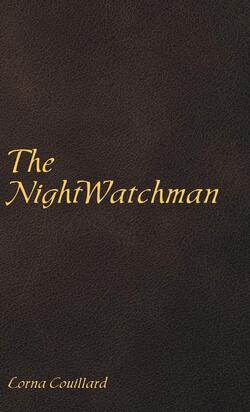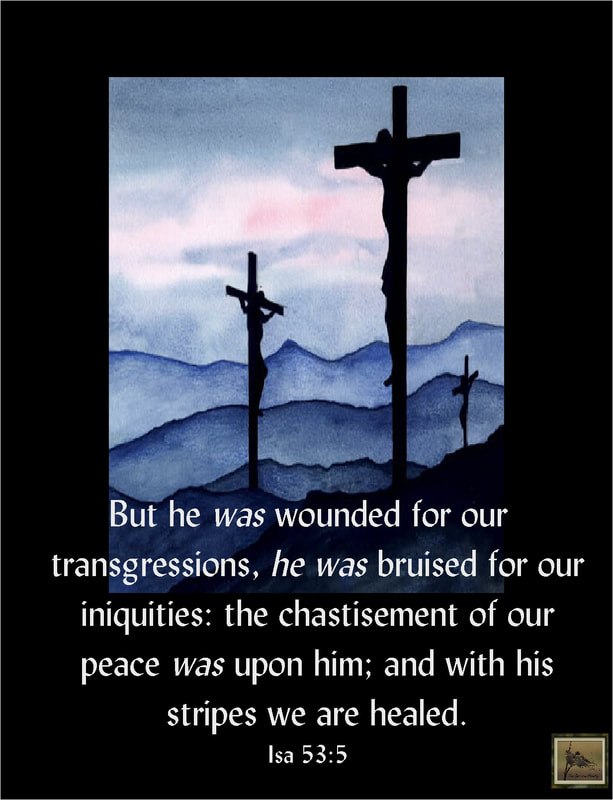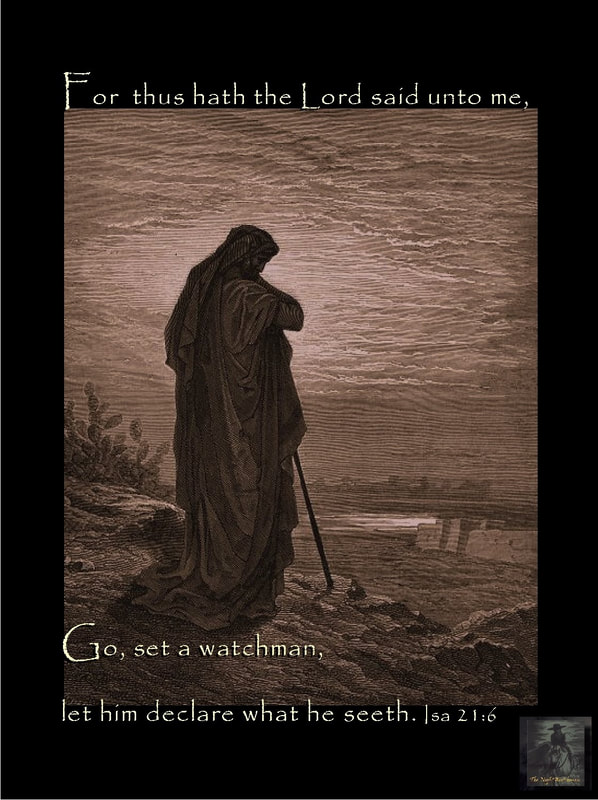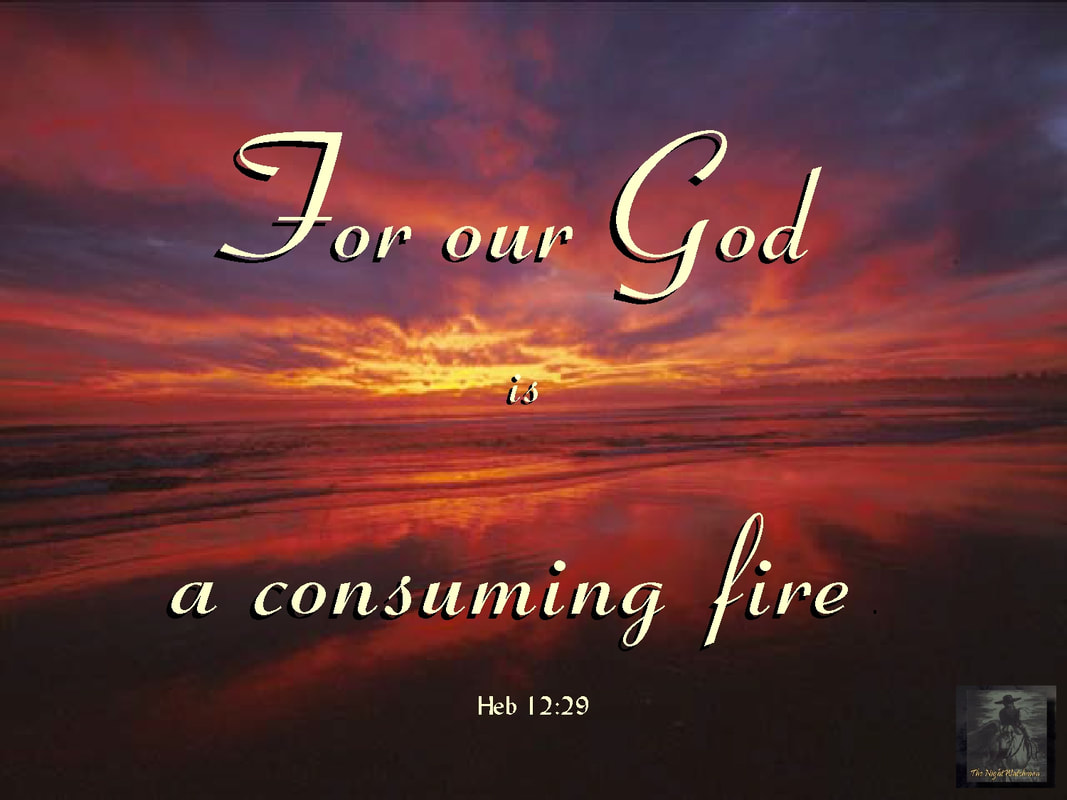|
All we like sheep have gone astray; we have turned every one to his own way; and the LORD hath laid on him the iniquity of us all. Isaiah 53:6 All we have gone astray.—The speakers are primarily the penitent Jewish nation, who at last have learned how much they had at first misunderstood the servant of the Lord. But the “we” and the “all” of our text may very fairly be widened out so as to include the whole world, and every individual of the race. Iniquity is the universal burden of us all. The fact that every man is a transgressor of the law of God is the prime fact of humanity, and the all-important truth needed for the apprehension of the very rudiments of the Gospel. We shall never know what we need, or be able to understand what Christianity, as gathered in Christ—who is Christianity—offers to do for us, unless our eyes are opened and our consciences made sensitive to the unwelcome but undeniable truth that we all “have sinned and come short of the glory of God.” I believe that almost all of the mistaken and unworthy conceptions of Christianity which have afflicted and do afflict the world are directly traceable to this—the failure to apprehend the radical fact affecting men’s condition that they are all sinful, and therefore separated from God.1 [ A. Maclaren.] “Gone Astray!” Two little words spoken in a moment, but how humbling to man’s pride. There are men of great intellectual grasp and culture. They have swept the heavens with telescopes, and searched them out. They have explored and mastered the secrets of the earth. To them science and art have laid bare their treasures. We admire and honour them. We do well; for their discoveries confer immense benefits upon the human race. But God looks down upon every one of them by nature, and says, “Gone Astray!” There are men of great wealth. Broad acres own them as lord, their rent-roll is reckoned by hundreds of thousands of pounds. In addition to this, they are philanthropic and kind. It is joy to them to succour the fatherless, and to care for the widow. With open hand they delight to help forward any scheme which promises to lighten the sufferings of their fellow-men. We love these men. We do well to do so. But God looks down upon every one of them by nature, and says, “Gone Astray!” There are men of the strictest integrity and the highest morality. All their business transactions are conducted with honour; and in all their private relationships they are scrupulously upright. Everybody respects and trusts them; yet God looks down upon them all by nature and says, “Gone Astray!” There is only one Individual in history of whom it is a likeness. The life and death of Jesus Christ—lived and died five hundred years after the very latest date to which any one has assigned this prophecy—fit it feature by feature, tint by tint, as nothing else can. And the minute external correspondences between the prophet’s vision and the Gospel story, important as these literal resemblances are, are mainly important as pointing onwards to the complete correspondence between the spirit and functions of the suffering servant of the prophecy and of the Jesus Christ of the Gospel history. (Excerpt from Great Texts) The Lord Hath Laid On Him the Iniquity of Us All Who finds for me a rescuer? Who provides me with a Savior? It is the Lord. It is God the Father and God the Judge. It is He whose commandments I have broken, and whose sentence I have incurred. Not, however, without the fullest consent of Jesus, did God assign Him a task so sorrowful and a burden so heavy. The Shepherd’s delights were with the foolish and willful sheep, whom he could not bless without passing through the furnace and the flood. Ah! there is no God like mine. God is Love—God the Father and God the Son; and between the affection of these two I dare not discriminate. (Note: A. Smellie, In the Secret Place) "The words, “The Lord hath laid on Him the iniquity of us all” are a foreshadowing of the death of Jesus. The man who uttered them was thinking of life. He knew that many righteous had suffered for the unrighteous. Probably he was patiently suffering for others. The whole chapter is the heart-utterance of one who bears the sins of others, who feels the guilt of his fellow-men. Human experience is revealed in these immortal, soul-subduing words. They reveal an eternal principle, and only Jesus expressed it fully in His life and on the Cross." (Excerpt from F. R. Swan, The Death of Jesus Christ) “The Lord hath made to light on Him the iniquity of us all.” In the compass of three verses of this chapter, there are seven distinct, emphatic, and harmonious utterances, all bearing on the one thought of the vicarious suffering of the Lord Jesus Christ. (1) “He hath borne our griefs”; (2) “And carried our sorrows”; (3) “He was wounded for our transgressions”; (4) “He was bruised for our iniquities”; (5) “The chastisement of our peace was upon Him”; (6) “And with His stripes we are healed.” And they are all gathered together in the final word of this text—“The Lord hath made to light on Him the iniquity of us all.” I venture to say that if these words, in the variety of their metaphor and the fulness of their description, do not teach the Gospel that Jesus Christ bore in His sufferings the sins of the whole world, and bore them away, language has no meaning. Nothing could be more emphatic, nothing more reiterated, full, and confident than this sevenfold presentation of the great truth that He lived and suffered and died for us because He suffered and died instead of us. [Note: A. Maclaren.] The Sin-Bearer Lord, dost Thou look on me, and will not I
Launch out my heart to Heaven to look on Thee? Here if one loved me, I should turn to see, And often think on him and often sigh, And by a tender friendship make reply To love gratuitous poured forth on me, And nurse a hope of happy days to be, And mean “until we meet” in each good-bye. Lord, Thou dost look and love is in Thine Eyes, Thy heart is set upon me day and night, Thou stoopest low to set me far above: O Lord, that I may love Thee make me wise; That I may see and love Thee grant me sight; And give me love that I may give Thee love. [Christina G. Rossetti.] Robin Mark -- The Wonder of Your Cross https://youtu.be/K6fv9rkIIZo?si=lgVIf83nYVcRNVAI Comments are closed.
|
Welcome
In this page there will be devotions/poems music and inspirational material 
The Lord Will Pour Out His Spirit
And it shall come to pass afterward, that I will pour out my spirit upon all flesh; and your sons and your daughters shall prophesy, your old men shall dream dreams, your young men shall see visions:
And also upon the servants and upon the handmaids in those days will I pour out my spirit. And I will shew wonders in the heavens and in the earth, blood, and fire, and pillars of smoke. The sun shall be turned into darkness, and the moon into blood, before the great and the terrible day of the LORD come. And it shall come to pass, that whosoever shall call on the name of the LORD shall be delivered: for in mount Zion and in Jerusalem shall be deliverance, as the LORD hath said, and in the remnant whom the LORD shall call. Joel 2:28-32 But this is that which was spoken by the
prophet Joel; And it shall come to pass in the last days, saith God, I will pour out of my Spirit upon all flesh: and your sons and your daughters shall prophesy, and your young men shall see visions, and your old men shall dream dreams: And on my servants and on my handmaidens I will pour out in those days of my Spirit; and they shall prophesy: Act 2:16-18 Resources
Madame Guyon - A Short and Easy Method of Prayer / Christian Audio Book (1 / 2) https://youtu.be/eihZWpAk7y4?si=PQ-_J3Y6i8u-N2Ac Union With God By Jeanne Guyon Chapter 1 Of 7 https://youtu.be/d5AfKS2dFLg?si=VtWAeEurkAddTDpL The Practice of the Presence of God - audiobook Brother LAWRENCE (1614 - 1691)- https://youtu.be/rRAs_BK1NR8?si=hGAL4C829aH7 DKMn Gander Story Poems
https://www.gander poems.org/ Archives
July 2024
|
Proudly powered by Weebly







